Small businesses have a lot to benefit from SEO. It is not an exaggeration to say that businesses that don’t practice SEO miss out on crucial opportunities to reach their target audience and grow their brand.
Why Is SEO Important For a Business?
SEO is important for businesses because it can help you get high-quality traffic from search engines without paying for ads. For any business to survive, it needs customers, and one of the most effective channels to reach people interested in your offerings is Search Engine Optimization.
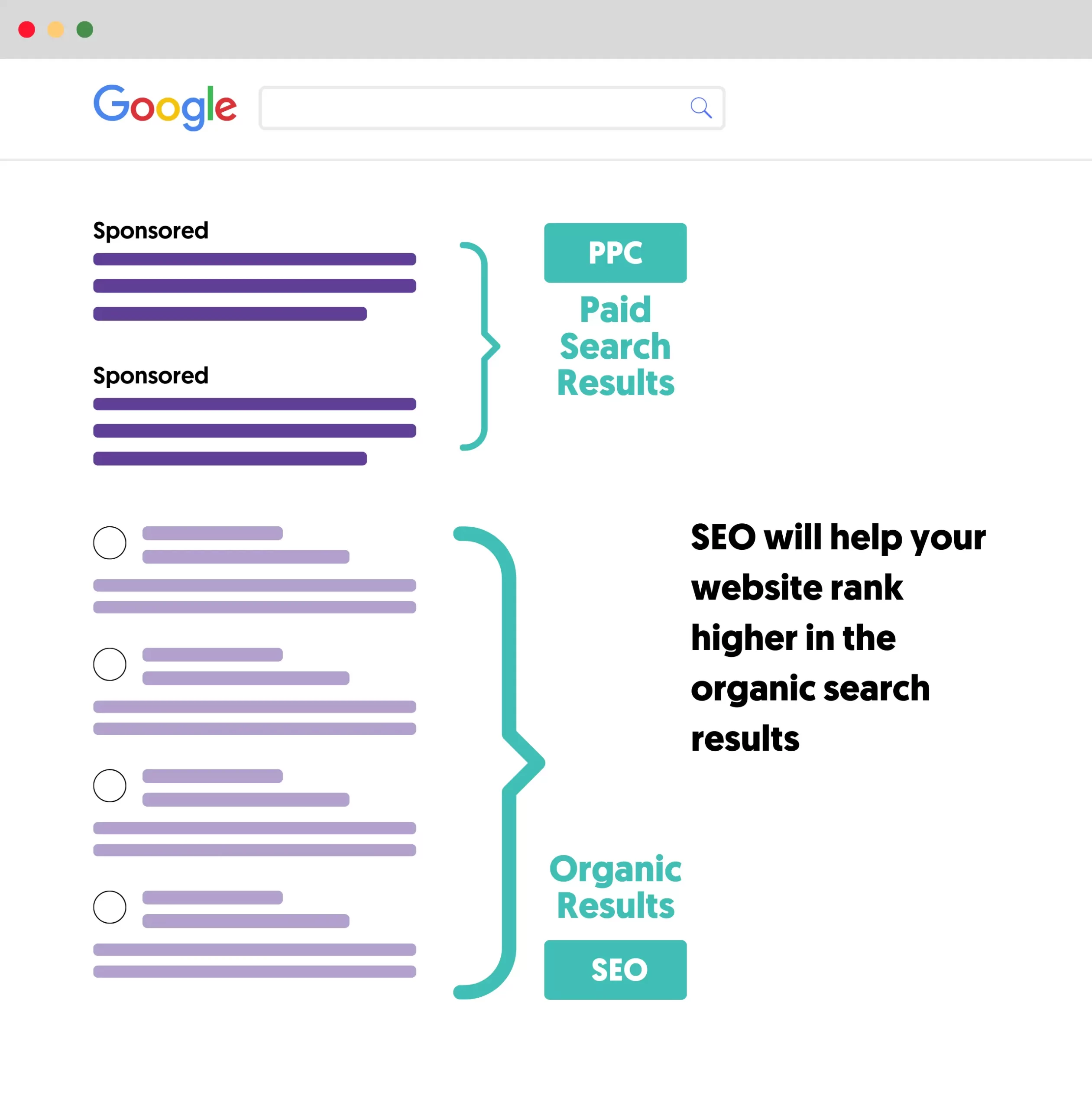
SEO is cost-effective, scalable, and can work well with other marketing tactics, making it a useful digital marketing strategy.
10 Top Benefits of SEO
These are the key benefits of SEO for businesses:
- Increases Organic Traffic
- Boosts Brand Credibility and Trust
- Drives Sales and Leads
- Cost-Effective Marketing Strategy
- SEO Is Scalable
- SEO Complements Other Marketing Tactics
- Improves Visibility For Local Businesses
- Enhances User Experience And Website Usability
- Provides Measurable and Quantifiable Results
- Gives a Competitive Edge
1. Increases Organic Traffic
The most significant benefit of SEO is an increase in search engine traffic. Search engines serve billions of search queries daily, driving millions of visitors to websites that appear in the top positions of the SERPs.
According to studies, most traffic is distributed to the top 5 results. With SEO, you can optimize your website to appear in the top positions for keywords related to your products and services. A business that gets organic traffic is like it is open 24 hours per day, 7 days a week. That’s the magic of the Internet and SEO.
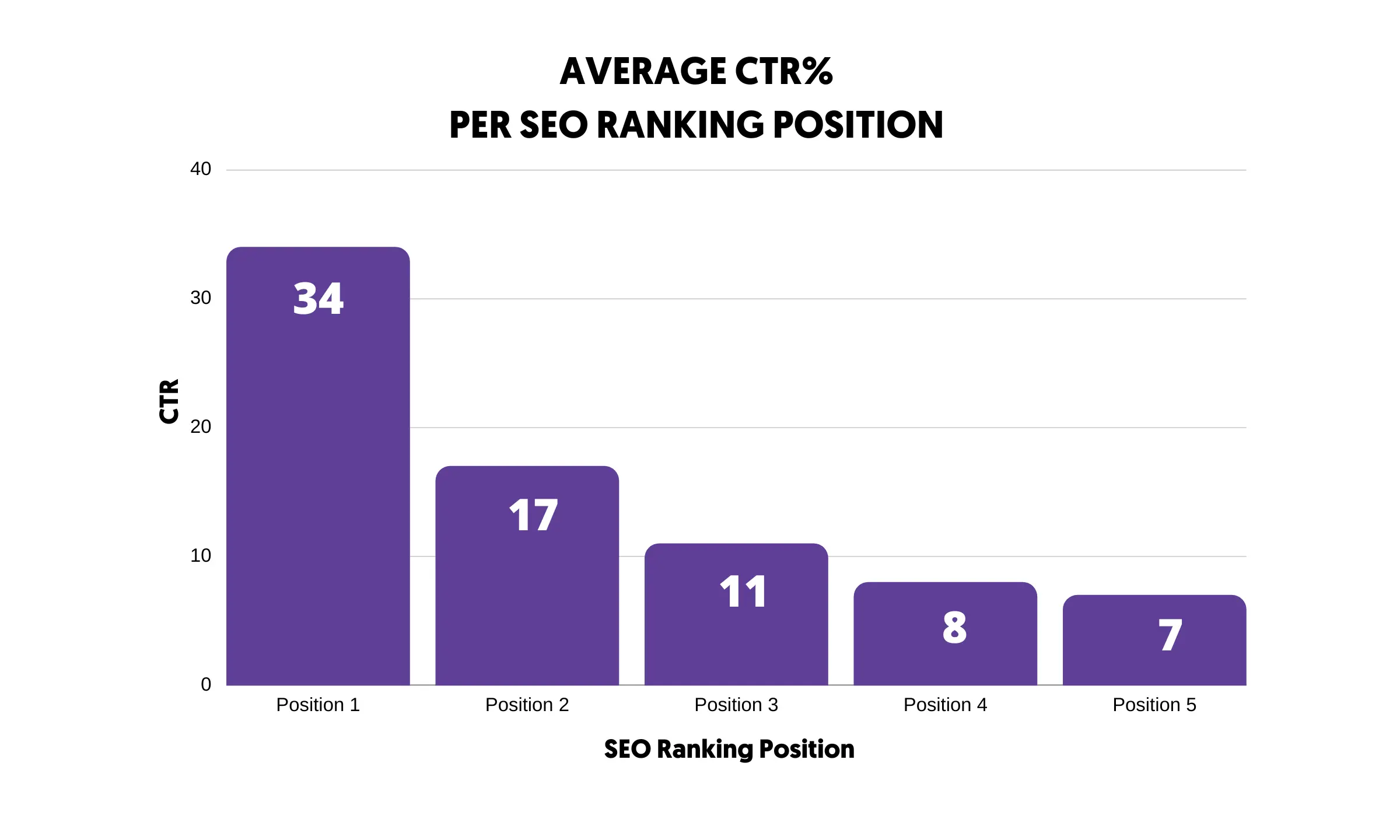
2. Boosts Brand Credibility and Trust
One of the hidden advantages of ranking in the top positions of the SERPs is brand credibility and trust. Users are more likely to trust a brand when it appears in the top positions on Google than brands that don’t have a good web presence.
This implicit endorsement by Google significantly influences customer perception, making them more likely to trust and engage with the brand.
Small businesses that need to build brand awareness (either for local purposes or for expanding nationally) need to invest in a robust SEO strategy and gain top positions for the terms related to their business.
This is not the 90s anymore; search engines play a significant role in building or destroying a brand.
3. Drives Sales and Leads
Another benefit of SEO is business growth. SEO is a great sales channel because organic traffic is highly targeted. Unlike other channels like social media, users visiting your website from search engines have a specific intent.
An SEO-optimized website gives users what they want and satisfies their intent. This translates to more leads, sales, and conversions.
4. Cost-Effective Marketing Strategy
SEO has a higher ROI compared to any other digital marketing channel. According to recent studies, SEO yields the highest ROI at 29.2%. This outperforms other channels like social media (18.8%) or PPC (12.3%).
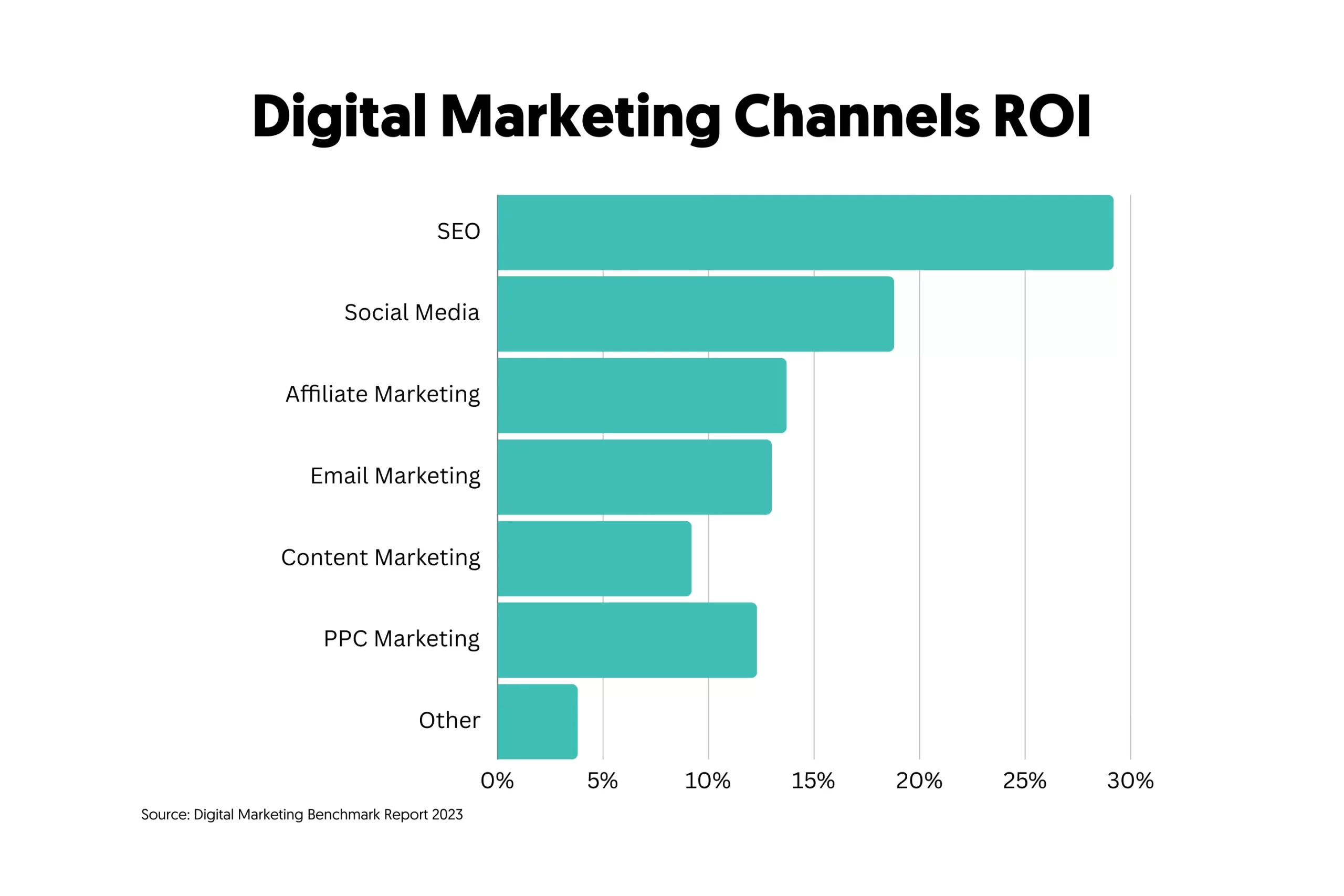
With SEO, any investment you make to generate content for your website can produce long-term results. That’s not the case with Facebook or Google Ads. Money spent on paid advertising is only effective as long as your campaign is active. Once you stop advertising, the visibility and traffic also stop.
In contrast, a well-optimized SEO strategy continues to attract organic traffic and grow your brand presence over time, making it a more sustainable and cost-effective solution for long-term business growth.
5. SEO Is Scalable
Another benefit that highlights the importance of SEO for small businesses is that it’s a scalable marketing tactic. By constantly working on your off-page SEO and content marketing, you can increase your domain authority and experience more visibility and exposure in search engines.
Websites that use white-hat SEO practices minimize their risk of being negatively affected by Google ranking updates, and they can use the constant flow of high-quality traffic to scale their business.
6. SEO Complements Other Marketing Tactics
An advantage of SEO is that it can work alongside any other marketing tactic. For example, when running Google Ads, you can use SEO to rank organically for the same keywords targeting in your PPC campaigns. This will result in capturing more real estate in the results, better visibility, and more traffic to your business.
Moreover, integrating SEO with your social media efforts can amplify your brand’s reach. You can publish SEO-optimized content to capture traffic and redirect it to your social media platforms. Similarly, you can use your website’s content to feed your social media channels.
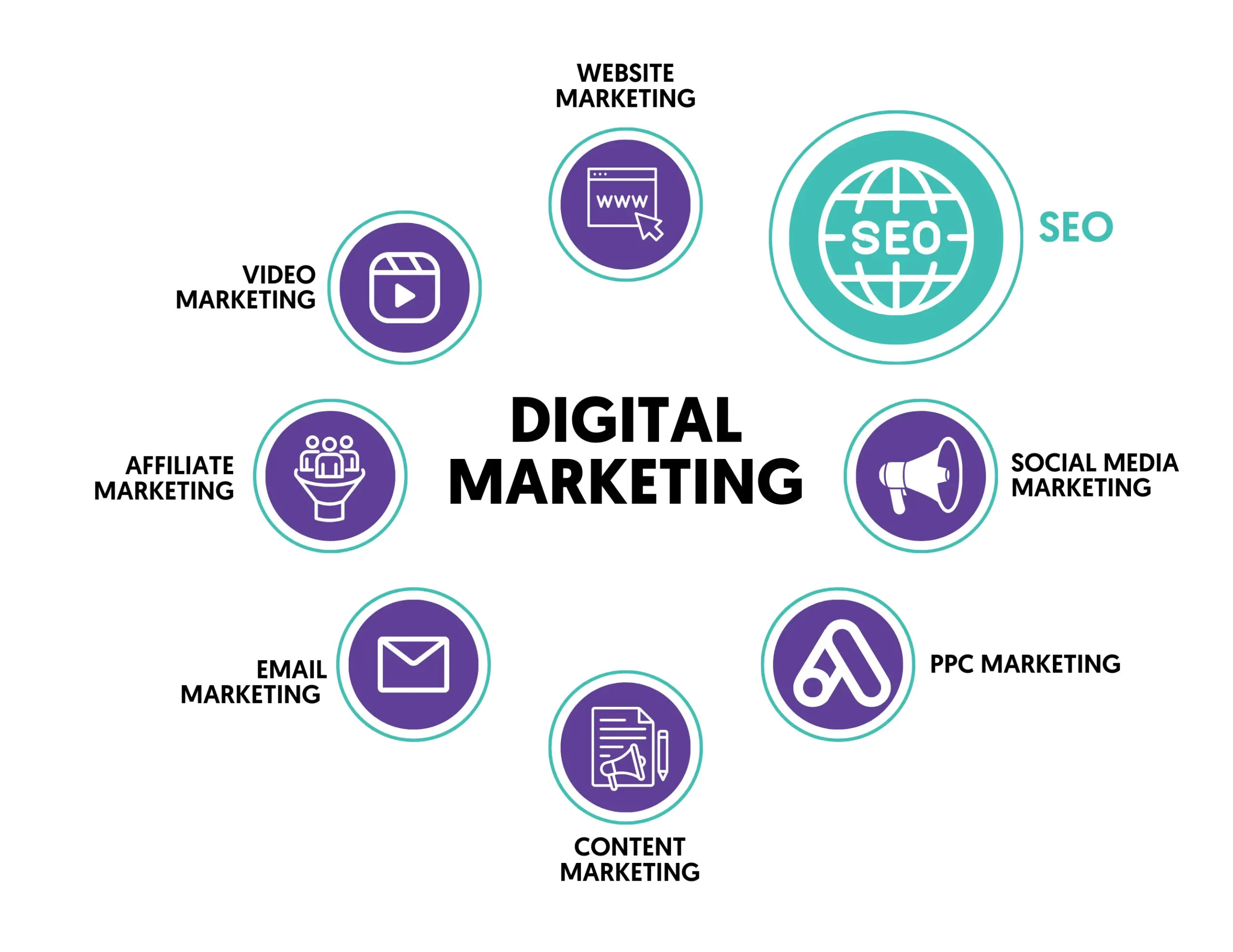
This synergy between SEO and all other marketing channels ensures a holistic approach to digital marketing, maximizing the impact of each strategy.
7. Improves Visibility For Local Businesses
SEO is extremely important for local businesses. Through local SEO, you can position your business in the local search results when people look for businesses in their local area. This includes optimizing your website and content for local keywords, managing your Google Business profile listing, and getting positive customer reviews.
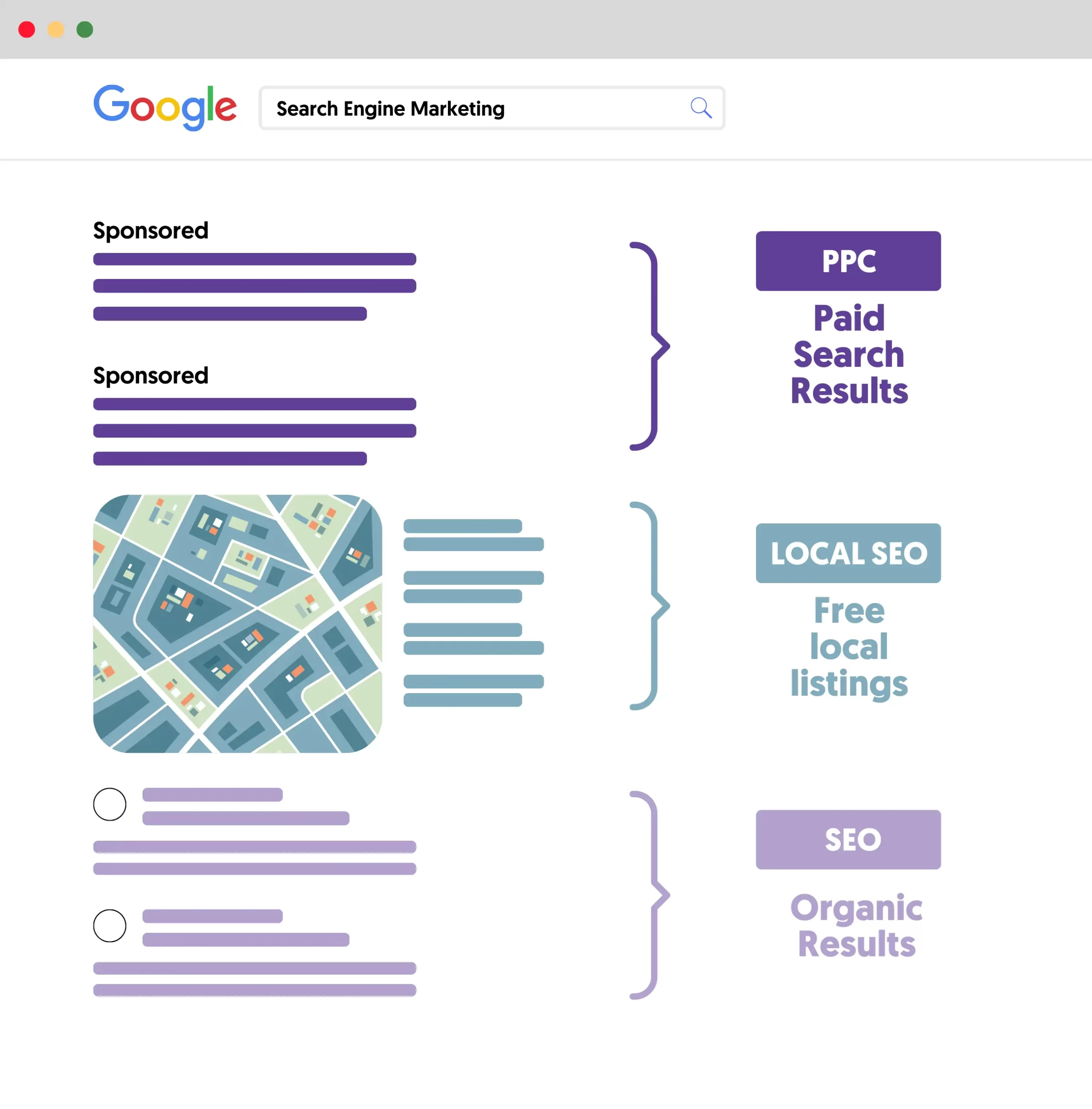
Such practices improve your online presence and direct potential customers to your doorstep. With most local searches leading to a visit within a day, focusing on local SEO is one of the most effective ways to get people into your brick-and-mortar store.
8. Enhances User Experience And Website Usability
SEO will help you create a better, faster, and friendlier website for users. Despite the name, search engine optimization is not only about search engines, but the focus is on the user experience. When your users are happy, search engines are happy as well.
Google guidelines focus a lot on providing a great user experience. This forces website owners to pay attention to usability, which creates many short-term and long-term benefits for businesses.
9. Provides Measurable and Quantifiable Results
One characteristic of SEO is that every step in an SEO campaign can be measured and quantified. You can use different tools to measure how often your content appears on the SERPs, how many people visited your website, which keywords generate traffic and sales, and many other metrics.
For business purposes, this is important because you can make plans, measure ROI, and set KPIs to monitor and grow your business.
10. Gives a Competitive Edge
Imagine two businesses in the same niche, selling similar products at similar prices. One has a search engine-optimized website, and the other has a non-optimized web presence.
Other things being equal, which company do you think is more successful? Which company will gain more customers and is likely to grow faster? Businesses that practice SEO have a competitive edge over companies that don’t invest in SEO.
SEO allows you to outrank your competitors and become a leader in your industry. You can analyze your competitor’s SEO performance to find opportunities, build better content, and outrank them. This will increase your visibility and attract more potential customers to your site. It also establishes your brand as an authority in your field, making customers more likely to choose you over your competitors.
How To Get Started With SEO Marketing
Follow these steps to take advantage of all the benefits SEO offers for your business.
Create a Website For Your Business – First, you need a website. This may sound weird, but it is a fact that more than 50% of American businesses do not yet have a website. This is a figure from a recent Google survey that stresses the importance of business growth from having an online presence.
Design And Implement an SEO Strategy – Second, you need to design an SEO strategy. An SEO strategy will guide you in creating and optimizing content to rank higher in search engine results. This involves technical SEO, on-page SEO, and off-page techniques.
Learn SEO – Finally, invest time in learning SEO basics. There are great SEO certification courses and tutorials that can help you understand how SEO works. Staying informed about the latest trends and updates in SEO will ensure that your strategies remain effective and adapt to the ever-evolving digital landscape.
Leverage Local SEO – Local SEO is a great starting point for small businesses, especially those with physical locations.








